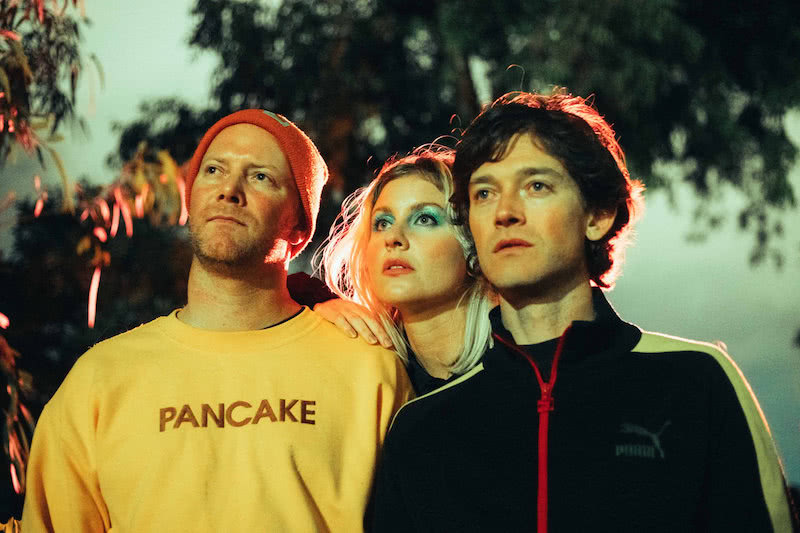Green Noise: The challenges in creating an environmentally responsible event

Green Noise started with us questioning what else we could do, as musicians and individuals, to combat climate change.
The catalyst for the idea came from witnessing a growing movement of climate strikers and environmental organisations demanding action on climate change. Environmental issues can feel too huge and complex to fight on an individual level, which is why we’re striving to utilise our platform and network within the music industry to highlight various ways to enact positive change in this field.

Winter McQuinn and Acacia Coates by Stephen McKenzie
There is a lot of messaging out there urging individuals how to be more eco-friendly, whether it’s by boycotting plastic straws or going vegan, but we’re also interested in the idea of funnelling this energy promoting positive change into the music industry. Music has a unique opportunity to influence a wide range of people, and the more people and groups within this field green-up their practices, the bigger positive impact the music industry can have collectively.
We were hugely inspired by the launch of FEAT. initiative, which combats the carbon footprint musicians create through touring by encouraging them to invest in their solar farm in Queensland, and in renewable energy solutions for the future. Another group that motivated our project was Green Music Australia, who are reducing waste at music festivals through campaigns tackling single-use plastics and promoting eco-friendly artist riders.

FEAT logo
Throughout the process of organising this event we’ve learnt that some of the key challenges in running sustainable events are: riders, waste management, transport and electricity usage. These all produce significant carbon emissions, so working to minimise and offset their impact is important.
Waste management
Opting for locally-sourced, waste-free, organic and vegan riders reduces emissions, as well as requesting no single-use plastics, and reducing your food waste. Plastic-free riders mean venues can easily compost food waste and recycle cans and glass, effectively managing waste at the same time.
Music venues will have varying degrees of energy usage and waste management, so donating some of an event budget or profits to an offset program that sequesters carbon from the atmosphere (such as bush regeneration or tree-planting) is a great way to reduce the carbon footprint of events. Engaging venues in discussions about their energy usage and how they could switch to being renewable sources is also great.
Carbon offsetting
We’ve found that there isn’t an ideal, clear-cut template for going about offsetting an average gig. There are numerous carbon calculator tools online, which often request specific information about a venue’s power usage, event attendance, how everyone travelled to the event, and so on. We’re definitely envisioning ways or resources we could attempt to make this process easier too.
In terms of transport, most bands fly or drive long distances to play shows in Australia, which isn’t environmentally friendly. An offset budget counteracts the effect travel has, as well as booking local acts where possible, and encouraging punters to cycle or catch public transport to shows while promoting an event.
Taking all of this information and considering the key emissions producers, the steps we’ve taken to make Green Noise as sustainable as possible:
We’re committing to a carbon-neutral event, calculating as much as we can about the venue and attendance emissions that will be created, and donating a portion of our budget to Friends of Merri Creek – the Darebin community group practising bush conservation and regeneration.
We’ve booked a stellar lineup of local acts: Jade Imagine, Elizabeth, Empat Lima and The Vovos. These artists share our passion for environmentalism and are active in this space themselves – The Vovos being student climate strikers, and Jade an ambassador for Green Music’s BYO Bottle campaign.

Jade Imagine
We’ve also invited environmental groups, Friends of Merri Creek, Extinction Rebellion, AYCC and SEED to have a presence at this event, providing the opportunity to learn about local initiatives to get involved with or learn about sustainability from.
We’re supplying locally-sourced, vegan, waste-free catering, courtesy of Moon Rabbit cafe in Preston, as well as providing a bike rack outside the venue and encouraging attendees to cycle or catch public transport to the event.
We’ve also engaged The Thornbury Theatre in discussions about waste management and recycling on the day, avoiding selling single-use plastics, and providing a water station where patrons can refill bottles.
Green Noise is about starting conversations
Green Noise hopes to contribute to dialogues about how to make artistic practices more eco-friendly, and re-examine how we plan events from an emissions and sustainability perspective.
Enacting changes such as the ones touched on in this article on a broader industry scale would require a significant shift in attitudes and approaches, and isn’t going to happen overnight. Green Noise aims to shed light on what change could and should happen with venues, artists, punters and people working in the music industry in order to make musical practices and events more green.
Green Noise takes place on Sunday October 27 at The Thornbury Theatre. Lineup: Jade Imagine, Elizabeth, Empat Lima, The Vovos and DJ Hydralyte. Free. All Ages. Wheelchair accessible.
This article originally appeared on The Industry Observer, which is now part of The Music Network.






























